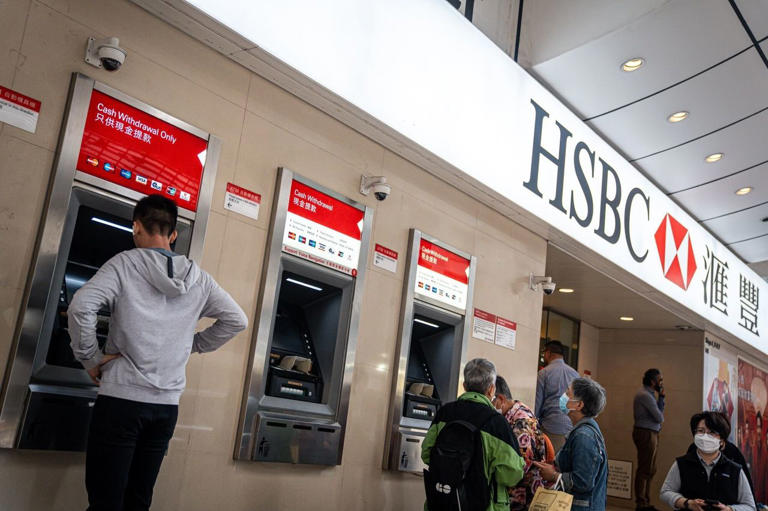HSBC Holdings plc’s second-quarter financial report for 2024 highlighted a mixed performance, showing a decrease in net profit but a positive outlook on interest income and strategic financial maneuvers. The bank reported a 3.6% decline in net profit, bringing it down to $6.40 billion compared to the same period last year. This result was notably better than the consensus estimate of $5.72 billion provided by analysts at Visible Alpha, showcasing HSBC’s resilience amid a challenging economic environment.
Despite the drop in net profit, HSBC’s pre-tax profit showed a modest improvement of 1.5%, reaching $8.91 billion. This increase indicates that while overall profitability faced some pressure, the core operations of the bank remained robust.
A significant factor affecting HSBC’s financial performance was the reduction in net interest income. The bank saw a 7.1% decrease in this key revenue component, with net interest income falling to $8.26 billion. Net interest income is crucial as it reflects the difference between the income HSBC earns from its loans and the interest it pays on deposits. The decline was attributed to a challenging interest rate environment and competitive pressures.
However, HSBC managed to partially offset this decline with a substantial 12% increase in non-net interest income, which rose to $8.28 billion. Non-net interest income includes revenue from fees, trading, and investment activities, demonstrating the bank’s ability to generate earnings from diverse sources.
In response to these fluctuations, HSBC revised its forecast for 2024, now projecting a net interest income of approximately $43 billion, an increase from its earlier estimate of at least $41 billion. This revision reflects the bank’s confidence in its ability to navigate the evolving interest rate landscape and capitalize on market opportunities.
The performance of HSBC’s various business segments showed a range of results. The global banking and markets division saw a notable 26% increase in profit, reaching $1.79 billion. This growth underscores HSBC’s strength in handling large-scale financial operations and market activities. Commercial banking also reported a solid performance, with profits rising by 4.4% to $3.18 billion. This segment benefits from the bank’s extensive network and client base.
Conversely, the wealth and personal banking segment faced a slight challenge, with profit decreasing by 0.8% to $3.28 billion. This decline might reflect broader trends affecting personal financial services and wealth management.
In a strategic move to enhance shareholder value, HSBC announced a share buyback program of up to $3 billion. This initiative aims to return capital to shareholders and support the bank’s stock price. The buyback is expected to be completed within the next three months, indicating HSBC’s commitment to shareholder returns despite the recent profitability challenges.
The leadership transition at HSBC also marked a significant development. Georges Elhedery, who had served as chief financial officer since early 2023, was appointed as the new chief executive officer, succeeding Noel Quinn. Elhedery brings a wealth of experience from his previous roles, including leading HSBC’s global banking and markets division and its Middle East operations. Under Quinn’s leadership, HSBC navigated the COVID-19 pandemic and accelerated its strategic pivot towards Asia, including scaling back operations in Western markets such as the U.S. and France. Quinn’s retirement marks the end of a transformative period for HSBC.
Additionally, HSBC reported a decrease in expected credit losses and other impairment charges, which fell to $346 million in the second quarter from $890 million in the same quarter the previous year. This reduction reflects improved credit conditions and the bank’s effective management of credit risks.
Overall, HSBC’s second-quarter performance demonstrates a complex mix of challenges and opportunities, with the bank adapting its strategies to navigate the evolving financial landscape while maintaining a focus on shareholder returns and operational efficiency.
